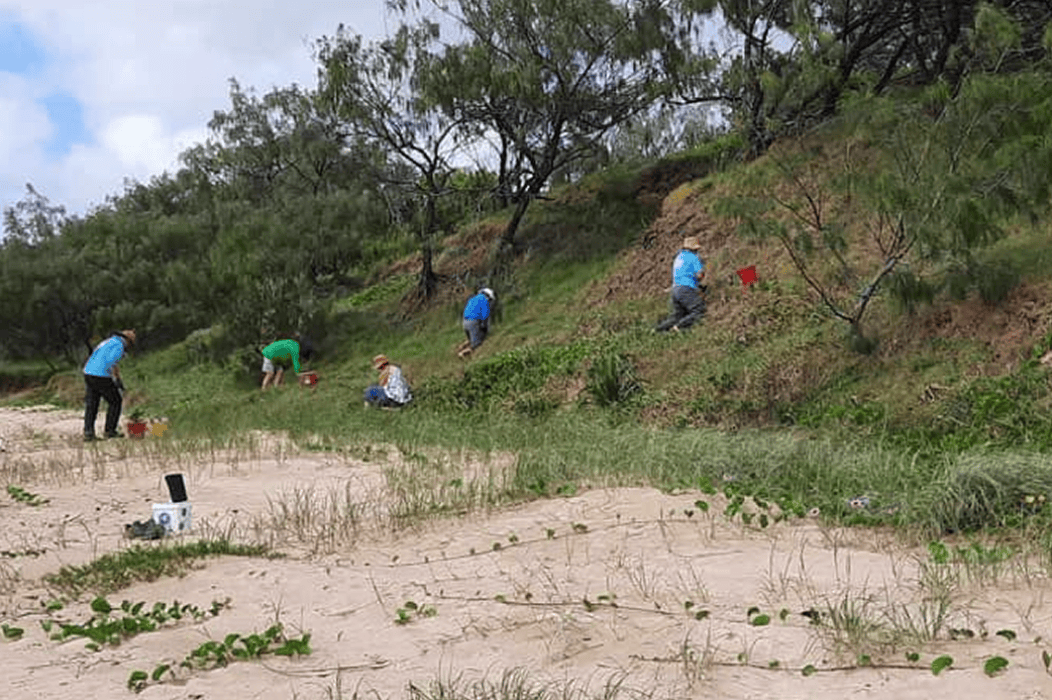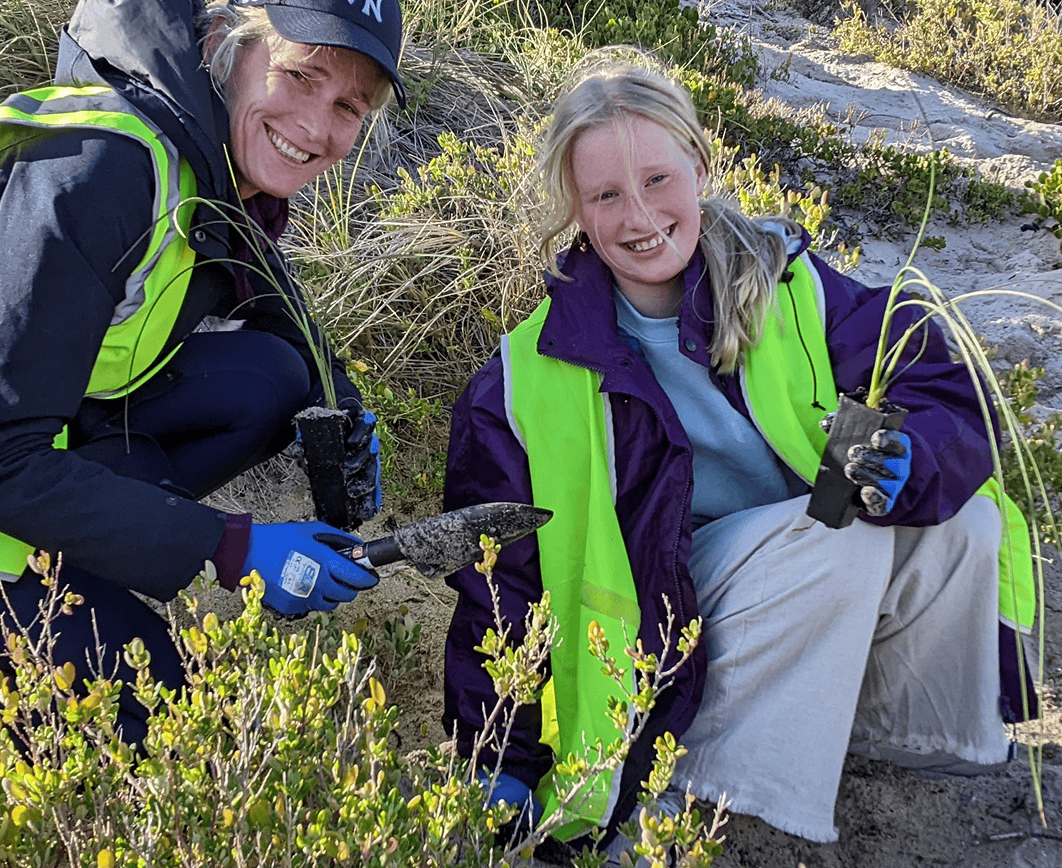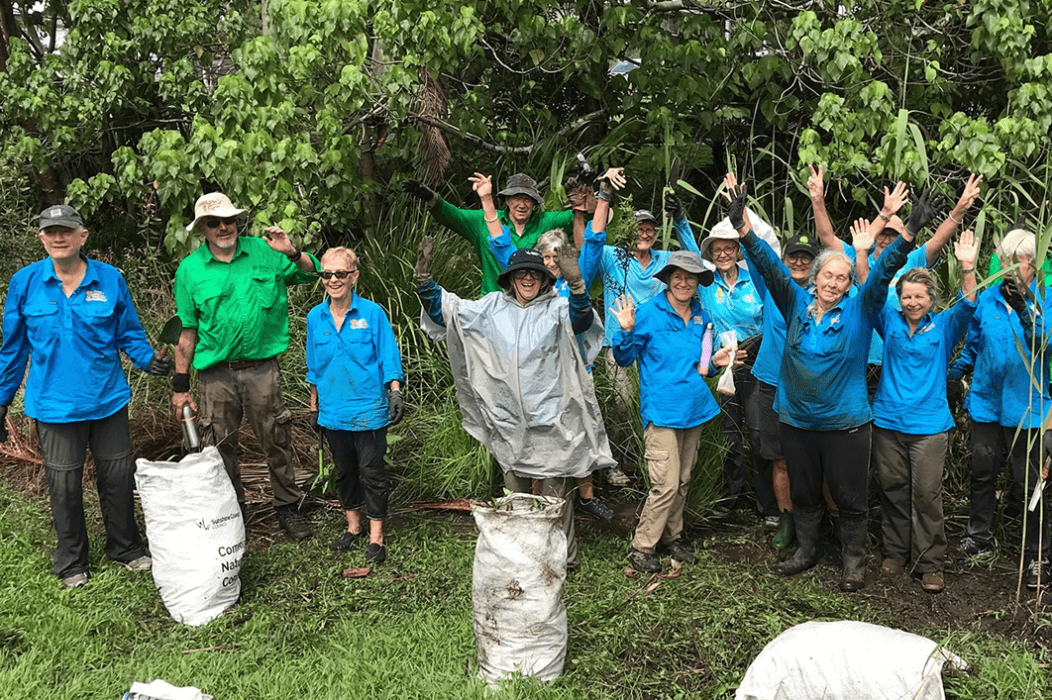Coastcare groups protecting our coastal
and marine environments
Landcare Australia’s Coastcare program supports a community volunteer network of groups and individuals made up of Australians who care passionately about the protection and management of our coastal and marine environments. Coastcare volunteers and groups identify local environmental problems and work together with government, local businesses, Traditional Owners and First Nations organisations, youth groups, schools and community groups to achieve practical and sustainable solutions.
Thousands of volunteers from across the country are part of Coastcare – they include Landcare, Bushcare, ‘Friends of’, Dunecare, Beachcare, Wildcare and any other community-led volunteer group working on conservation activities along the Australian coastline.
The conservation activities of the volunteers include dune erosion, loss of native coastal plants and animals, storm water pollution, weeds and control of human access to sensitive and vulnerable areas, and education programs for the broader public about issues affecting coastal and marine areas.

Get Involved in Coastcare
In many areas, Coastcare projects are supported by local government so we you recommend that you contact your local council to find a group near you and learn about the environmental issues in your community. In Victoria, Coastcare groups are supported by the state government and have a very successful Coastcare Victoria program. For more information about their activities please visit their website here.
You can access free Coastcare branded resources for groups here. To find a Coastcare group near you to volunteer or to list your group, please visit the National Landcare Directory
About Coastcare
In the early 1990s, the Australian Government’s Resource Assessment Commission undertook an inquiry into the management and use of the resources of Australia’s coastal zone. It was one of the most comprehensive investigations ever undertaken into the coastal zone. One of the recommendations of the Commission was that a national coastal action programme should be established involving all governments, community and industry groups with responsibility for, and interests in, the management of coastal zone resources.
In 1995 the initial Coastcare programme was established by the Australian Government, and in 1997 the Coastcare programme was rolled into the Australian Governments’ Natural Heritage Trust Clean Sea Programme. While there were community groups undertaking environmental works along the coast before this, the term Coastcare and Coastcare groups started around the mid-1990s. Coastcare is, in many ways, an extension of the landcare movement focusing on the coast.


The Coastcare Brand
Landcare Australia supports, promotes and raises funds for the Coastcare movement across Australia. Landcare Australia owns and manages the caring hands trademark and the use of the Coastcare brand. Landcare Australia’s brands and logos are easily recognised with a high reputation to uphold. As such, Landcare Australia restricts the use of the logo. Landcare Australia will create a Coastcare logo for community groups using the name of the group. For more information, please email us at [email protected]